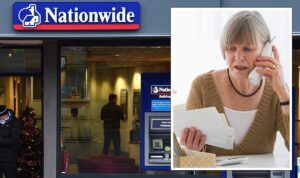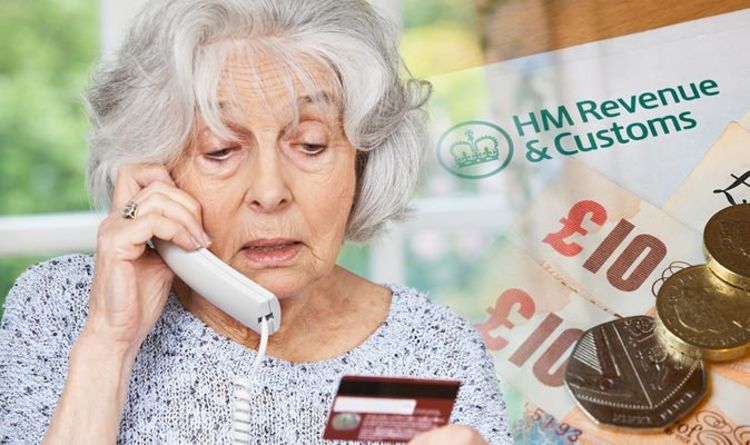Tax: HMRC issues worrying phone call scam warning – how to spot bogus communication
Unexpected phone calls may be something a person encounters from time to time, and they can prove to be worrying. This is something which HMRC has recently highlighted, as it told members of the public to be aware of some suspicious messages. Posting an example of a recorded phone scam, the government department offered an easy way to spot whether the communication was bogus or genuine. “This is what a scam call sounds like,” HMRC warned on a video posted on the official @HMRCgovuk Twitter account.
“You need to be vigilant about phone calls from fraudsters pretending to be from HMRC,” it added.
HMRC instructs anyone who receives a call of this kind to hang up and report it to HMRC.
So, what are some key warning signs when it comes to these types of scams?
It seems that a person, who claims to be from HMRC, contacting a taxpayer and threatening legal action or arrest, or demands payment using vouchers, then one ought to be suspicious.
“We will never call you out of the blue threatening arrest, a lawsuit or offering a tax refund, or asking for information such as your name, credit card or bank details.
“This will be a #scam. Hang up and report the call to us,” the HMRC tweet read.
From tax refund scams to banking online, protecting one’s personal details will be a priority.
The National Cyber Security Centre (NCSC) website offers some tips for members of the public who need help regarding common cyber problems.
This includes guidance on what a person should do if they think their banking details have been stolen.
It instructs concerned parties to contact their bank or building society, and to speak to the fraud department.
A bank will not ask customers to reply to an email with personal information or details about their account.
The NCSC offers a top tip on what to do when eating in touch with a bank.
Rather than responding to contact details provided in an email, the website suggests using a phone number or email address they have found themselves.
This is because there is a risk that the former “may be false”.
A person can check their credit reference file online.
The NCSC says people should follow up on any unexpected or suspicious results they may find.
You may be interested

You can easily disassemble this repairable smartwatch using just a Phillips screwdriver
admin - Nov 22, 2024[ad_1] The Spectra is a new smartwatch designed from the ground up to be hackable and easy to repair. It…

Ed Sheeran 'helped Ipswich sign player' before appearing with Taylor Swift
admin - Nov 22, 2024[ad_1] Ed Sheeran helped Ipswich Town to sign a player over the summer just before getting on stage with Taylor…

Strava closes the gates to sharing fitness data with other apps
admin - Nov 20, 2024[ad_1] We wanted to provide some additional context around the changes to our API Agreement and the impact for our…
Leave a Comment
You must be logged in to post a comment.


























